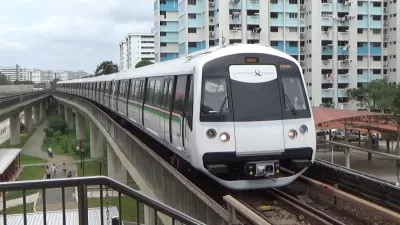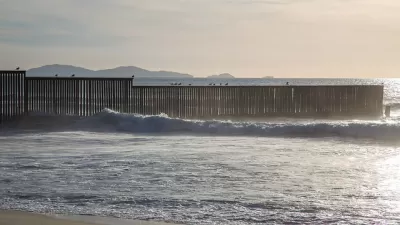Proposed restrictions on federal spending for transit railcars center on concerns about market competition and national security.

A recent Eno Center for Transportation report examines a proposed policy to restrict the use of federal funds for the purchase of transit vehicles from companies owned or subsidized by the People's Republic of China. The focus of this ban is CRRC Corporation Limited, the largest global supplier of rail transit equipment.
Proponents say the ban is necessary because CRRC is a state-owned enterprise receiving subsidies that can, as a result, underbid its competitors. They also say that CRRC will dominate the transit railcar market and move to take over the domestic freight railcar market down the road.
Opponents argue that the ban would burden American taxpayers and state and local governments, given the higher cost of transit railcars from other manufacturers. In addition, they say that domestic assembly plants for these railcars provide local jobs and encourage regional manufacturing, balancing out negative outcomes.
The report also discusses the national security concerns behind this transit railcar proposal:
Cyber threats—like spyware and malware—are a significant concern for the mass transit industry. The sector is undergoing rapid technological change as rail networks become more connected and automated, outfitted with amenities like mobile ticketing and Wi-Fi, and integrated in social networks.
The report notes that the Department of Homeland Security, as part of the National Defense Authorization Act, will be conducting a study about transit railcars manufactured by Chinese companies and national security threats.
FULL STORY: The Implications of the Federal Ban on Chinese Railcars

Alabama: Trump Terminates Settlements for Black Communities Harmed By Raw Sewage
Trump deemed the landmark civil rights agreement “illegal DEI and environmental justice policy.”

Study: Maui’s Plan to Convert Vacation Rentals to Long-Term Housing Could Cause Nearly $1 Billion Economic Loss
The plan would reduce visitor accommodation by 25% resulting in 1,900 jobs lost.

Planetizen Federal Action Tracker
A weekly monitor of how Trump’s orders and actions are impacting planners and planning in America.

Waymo Gets Permission to Map SF’s Market Street
If allowed to operate on the traffic-restricted street, Waymo’s autonomous taxis would have a leg up over ride-hailing competitors — and counter the city’s efforts to grow bike and pedestrian on the thoroughfare.

Parklet Symposium Highlights the Success of Shared Spaces
Parklets got a boost during the Covid-19 pandemic, when the concept was translated to outdoor dining programs that offered restaurants a lifeline during the shutdown.

Federal Homelessness Agency Places Entire Staff on Leave
The U.S. Interagency Council on Homelessness is the only federal agency dedicated to preventing and ending homelessness.
Urban Design for Planners 1: Software Tools
This six-course series explores essential urban design concepts using open source software and equips planners with the tools they need to participate fully in the urban design process.
Planning for Universal Design
Learn the tools for implementing Universal Design in planning regulations.
Caltrans
Smith Gee Studio
Institute for Housing and Urban Development Studies (IHS)
City of Grandview
Harvard GSD Executive Education
Toledo-Lucas County Plan Commissions
Salt Lake City
NYU Wagner Graduate School of Public Service




























